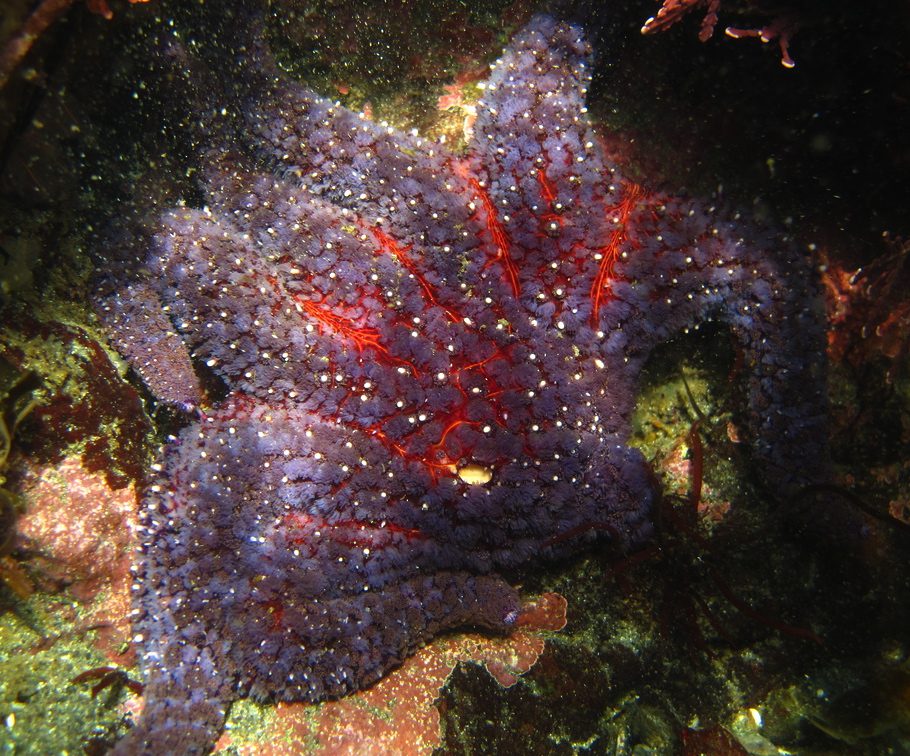Friday December 20, 2013
This marine creature might look like a bright holiday bauble, but it’s actually a fearsome killer with more than a dozen arms in its arsenal. The sunflower star, Pycnopodia helianthoides, is the largest sea star inhabiting the West Coast, and can grow as large as a manhole cover. This is the fleshy, voracious Godzilla of the undersea invertebrate world, which dwarfs other sea stars at diameters of up to one meter, and wields as many as 20 or 24 arms. Its diet is broad and consists largely of whatever is within reach: shellfish, snails, sea urchins, sea cucumbers, sand dollars, crabs, and even other sea stars are no match for its appetite. When other animals sense it coming, they quite literally flee – well, at a relative pace.
Sunflower stars themselves can move at a clip of 3 meters per minute, or lightening speed in the world of the spineless. However, as is common in nature, there is always something else higher on the food chain: Alaskan King crabs and large Cancer crabs have been known to turn these giant stars into a meal. While an adventurous beachcomber might catch a glimpse of one in a tidepool during an extremely low tide, Pycnopodia are a much more common sight for scuba divers among the kelp forests and nearshore rocky reefs where they dwell.
The population of Pycnopodia exploded in British Columbia’s waters during the fall of 2010, and photos depicted them carpeting the seafloor. But now, these and other sea stars are currently undergoing a massive and mysterious die-off in the same region. The culprit is a little-understood syndrome known as “wasting disease,” which essentially causes the sea stars to disintegrate from the inside out into lumps of goo. As scientists work to unravel the mystery of its cause, they are aided by reports from local divers, particularly photos and videos that document the die-off. So if you venture into Pacific Coast waters this season, watch out for signs of what might be laying these legless leviathans low.

